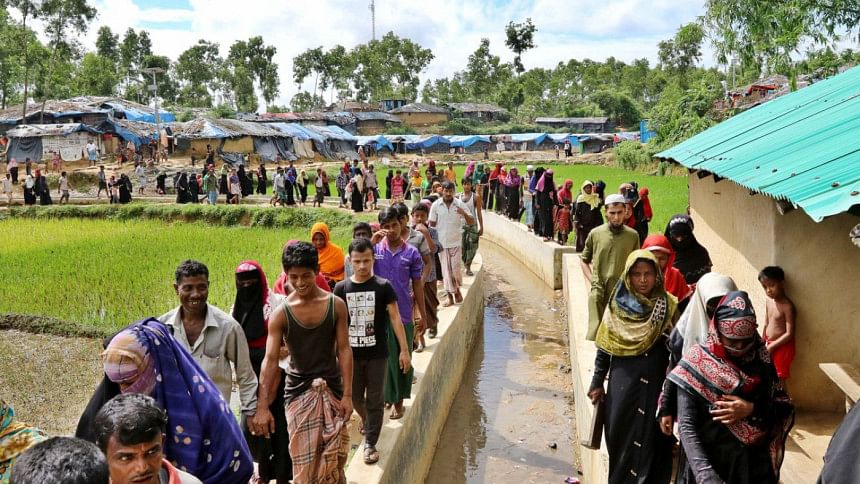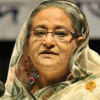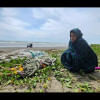Diplomatic challenges in contemporary times

Diplomacy is as much an exercise in political-economy as it is a psychological one, and it is this complex, manifold exercise that I will dwell upon with particular reference to the diplomatic challenges facing Bangladesh. And I shall limit myself to three circles of contemporariness.
The first circle of contemporariness: 1971
1971 had a lasting impact on the minds of Bangladeshis, creating an epistemological break when it comes to their understanding of past, present, and futures. The impact could be broadly divided into two contradictory outcomes, both sadly dystopian in nature, which are now a part of our "collective unconscious," very much in the sense outlined by Carl Gustav Jung. As Jung reminded us, "the contents of the collective unconscious have never been conscious and they are not acquired, but inherited." If that is the case, then dealing with it is the only option; any attempt to obliterate it will reproduce it further. The following are the two contradictory outcomes.
Firstly, engaging with the Other, with a passion to transform hopelessness into hope. This is where our migration discourse lies for both the "privileged" and the "less than privileged" classes. The proliferation of the Bangladeshi diaspora is the "new normal"; the international community only needs to recognise this. There has been some reaction to this leading to the tightening of the visa regime for the Bangladeshis. But then one must not forget, several countries, including Saudi Arabia, UAE, and even Singapore, once benefitted from our cheap labour! We need to flag this more creatively and make the best use of it.
Secondly, the fear of the Other, with an equal passion to transform hopelessness into hope. Such "fear" is not difficult to understand. Bangladesh suffered 190 years of colonialism under the British plus 25 years of semi-colonialism under Pakistan, and also suffered a genocide in 1971. The state of misgovernance and polarised politics has further added to this fear and is now a part of our "collective unconscious."
The second circle of contemporariness: globalisation
Globalisation came to our aid. In fact, with globalisation "production" became international for the first time in the history of capitalism, increasing the possibility of a win-win situation in the relationship between developed and developing economies. Two things practically reproduce Bangladesh economy, both of which are related to globalisation. One, the remittances from the diaspora; and two, the RMG sector. The role of GO-NGO partnership was critical in making the best use of globalisation, particularly the manner in which the NGOs have empowered the female workforce. Any break in this partnership will only benefit those who envy our relative "economic" success!
But globalisation also saw the "re-rise" of China and the "uneven rise" of India. Bangladesh is in a unique position to creatively nurture the newfound geopolitical terrain. There is no reason why Bangladesh should not start contemplating on holding Annual Business Summit of Bangladeshi, Chinese and Indian entrepreneurs, not only for the good of their respective countries but also for the development of the region. It could stand as a model for the world. The changing terrain is already noticeable. This year, more Indian students are going to China than Britain for higher studies! Let me make one thing clear, each and every space in the world is geopolitically important, provided its people have made a difference to their life and living.
But since the first circle of contemporariness or the "collective unconscious" will not go away, we fear both closeness and alienation. Indeed, we fear too closeness of a neighbouring country as much as we fear apathy and alienation of a neighbouring country. On the first, we try to maintain a distance, while on the latter, we try to reach out as much as we can. India and China (and now Myanmar) are good examples of the first and second respectively.
The third circle of contemporariness: the Rohingya exodus
The influx of the stateless Rohingyas is different from the previous two exoduses, that is, the ones that took place in the mid-1970s and 1990s. This time a genocide, or ethnic cleansing, or crime against humanity, whatever term one uses, has been committed by the Myanmar military. This issue will not go away even with a successful bilateralism between Bangladesh and Myanmar. This is also the place where the US and the West are destined to play a productive role.
One question merits attention: How was Bangladesh able to handle the flow of nearly 700,000 refugees in just three months' time, and now helping 1.2 million of them? The answer probably lies in 1971 and Bangladesh having nearly seven percent growth with a unique GO-NGO partnership. No doubt, GOB deserves credit for this, but so do the humanitarian workers now toiling restlessly in the Rohingya camps. In disaster management, Bangladesh has attained an expertise that can easily be exported and made useful in foreign policy.
The Rohingya crisis is bound to shift the gaze towards the East. A greater intellectual content, however, is required to make this effective. A friendly pool of "well-wishers" of Bangladesh needs to be created in the countries located in the East.
What about the seemingly negative regional response, particularly that of India and China?
The success of diplomacy lies in dealing with contradictions and turning deficit into surplus. It is time our prime minister made a trip to Beijing and Delhi, and made an effort to materialise Vladimir Putin's trip to Dhaka as well! Perception matters in diplomacy, more so in getting constant attention of the international media. We are, after all, in the era of iWar or virtual war, where getting ignored virtually is as bad as giving free space to the adversary.
The three circles of contemporariness are as much an abstraction as they are real. Indeed, one can make the best use of them not by focusing on the theory of scarcity (not what we have less, as it would reproduce the "collective unconscious" bordering on dystopia even further), but on the theory of abundance (what we have more). "People" and "water" (rain, riverine and oceanic) we certainly have more, and it is to this we need to shift our gaze and make the best of Bangladesh in the changing global dynamics.
Let me then conclude by saying that diplomacy is as much an art as it is a science. It is as much an issue of the matter, the objective world, the world of political economy, as it is of the mind or, as some would say, the soul. Bangladesh will thrive only by combining the two, albeit not mechanically, but creatively.
Imtiaz Ahmed is a professor of international relations at University of Dhaka.










Comments